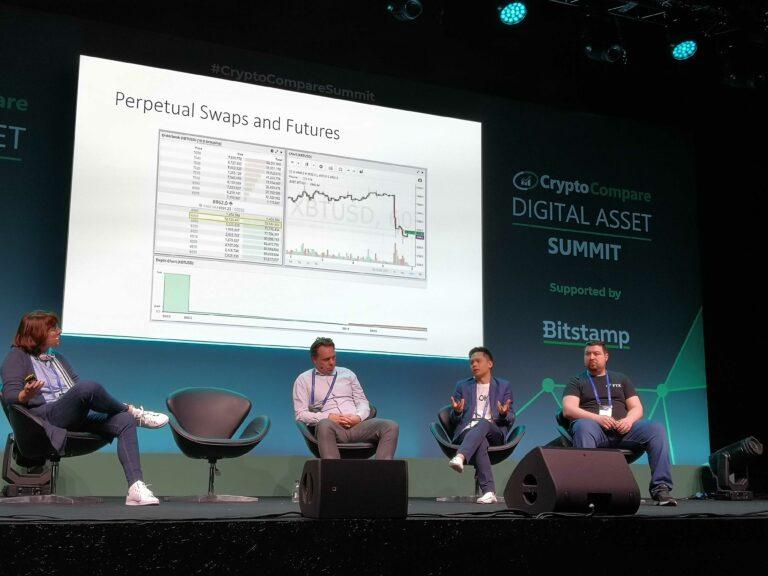The decentralized finance (DeFi) space has been making headlines over the last few weeks thanks to the use cases it’s providing cryptocurrency users, and over attacks pulled against one of its protocols.
These attacks, against bZx, were made thanks to flash loans – loans taken without collateral and repaid within the same transaction – and the low liquidity of the space. During an interview with CryptoGlobe at the sidelines of CryptoCompare’s Digital Asset Summit, Lennix Lai, OKEx’s Director of Financial Markets, revealed he believes the problem may soon be solved.
During the interview, Lai revealed OKEx decided to launch OKChain, its own public blockchain, to address technological challenges associated with existing blockchain technologies, and to help the industry keep on growing.
I think as an industry leader, who’s been operating a cryptocurrency exchange for a few years, it’s time for us to move forward, to solve fundamental problems of blockchain [technology].
OKChain works with a decentralized proof-of-stake (DPoS) consensus algorithm. Its native token is the OKT, which has been issued along with the genesis block, and has a supply increase between 1-5% per year.
Lai noted that OKChain’s architecture will allow regulators to be a part of the blockchain if they want to, as they will be able to run nodes. Regulatory compliance may be achieved via the network’s governance, if regulators participate in it and have the power to issue decentralized applications on it. OKEx has made it clear that, despite the potential participation from regulators, it aims to maintain decentralization.
As for OKChain’s use cases, Lai pointed towards the OKDEx decentralized application as one of the first to run on the network. Alongside it, OKChain will work with various decentralized finance projects so they’ll run their platforms on OKChain as well, Protocols in the space, he noted, work seamlessly with decentralized exchanges like OKDEx.
Bridging Centralized and Decentralized Finance
Lai added that he doesn’t think OKChain will be competing with Ethereum for decentralized finance dominance, as the OKChain will specialize in the cooperation between the centralized finance world – OKEx – and the decentralized finance world.
On OKChain, there isn’t yet a mechanism in place for users to stake their OKT tokens, but there are other options to earn interest within the OKEx ecosystem – for now, within the centralized trading platform.
OKEx, as CryptoGlobe reported, became the first cryptocurrency exchange to integrate the Dai Savings Rate (DSR), and even gave its users added interest for using the DSR via its platform. The added interest is paid out of its own pockets, according to Lai, but it has helped grow DeFi but giving MakerDAO new users that don’t need to understand what’s going on under the hood for them to earn interest on their holdings.
Centralized finance is, per Lai’s words, acting as a broker to the decentralized finance space, sending new users its way. He said:
I think this is a particularly good example of the collaboration between the centralized finance and decentralized finance spaces, as CeFi acts as an entry portal for DeFi.
Regarding the long-term viability of the interest rates users earn in the cryptocurrency space, Lai noted he believes the industry will solve upcoming problems together, that will allow proof-of-work and proof-of-stake consensus algorithms to exit for a “very long time.”
Regarding where he sees OKChain in the next five years, he said:
We should become a part of the decentralized ecosystem, and we’re going to see a lot of exciting, interesting projects [launch on OKChain]. With OKDEx present I think the volumes will be 10x bigger.
He added that thanks to OKChain’s architecture, within five years we may see regulators start running nodes on the blockchain. This would lead to a very “healthy and comfortable environment for the decentralized finance spaces.” This, he said, would create a more open financial system.
Lennix Lai cautioned near the end of the interview that “right now, OKChain is a development layer” and that it’s welcoming decentralized applications, developers, and “anyone who has an idea to work together on an open financial system for the whole world.”









